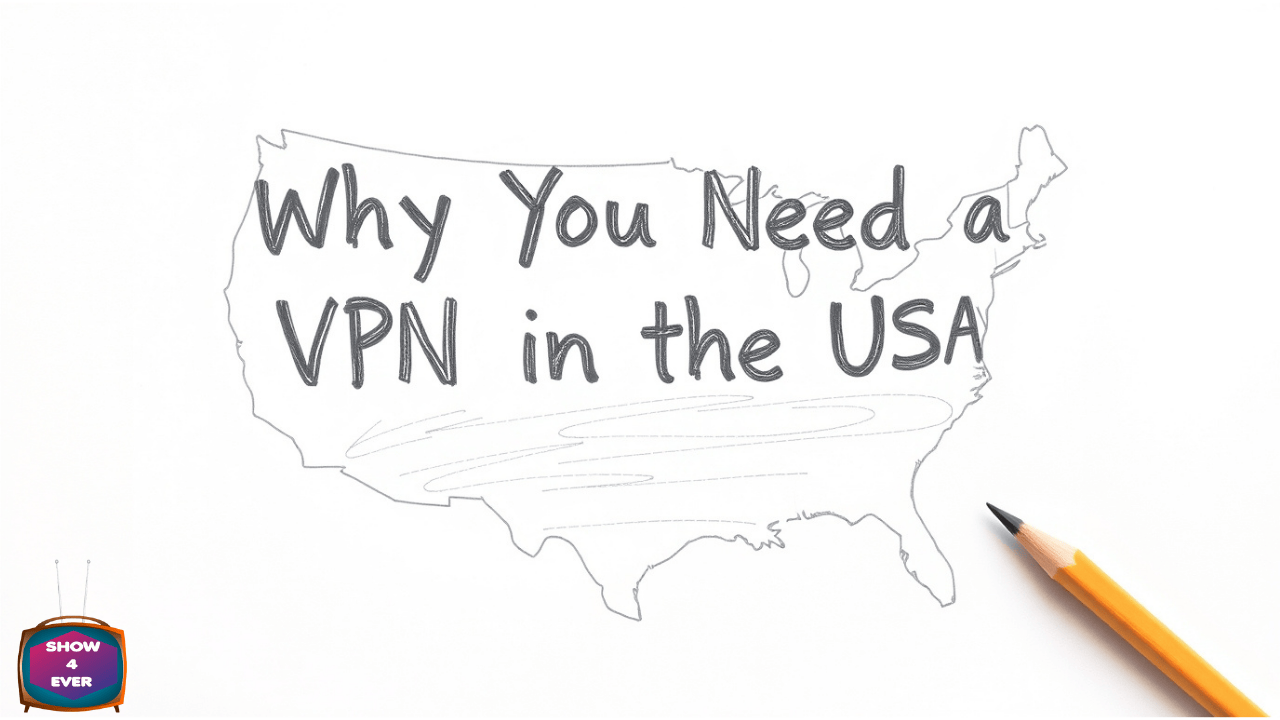Can My ISP See My IPTV Usage? Exploring the Privacy Concerns of Streaming Services
Introduction
Internet Protocol Television (IPTV) services have gained more popularity over the last few years and millions of users have ditched cable in favor of internet streaming. IPTV is very diverse and has several opportunities, for watching live programs, receiving video on demand, and others, having its unique programs. But as streaming services are integrated into our daily life expectantly, fears about our privacy on the Internet increase too.
One of the things that many users wonder is, can my ISP see my IPTV? To cover as many of the aspects of the topic, it is imperative to explore the dynamics between the ISP and the user’s streaming circumstances. IPTV stands for Internet Protocol television and in this article, we will look at how this service operates, how much of your usage your ISP can snoop, legal issues, and how to cover your tracks.
Understanding How IPTV Works: What Your ISP Can And Cannot See
IPTV is wholly an Internet solution to televisions, which provides television programming through Internet Protocol-based networks rather than broadcast, satellite, or cable. But how does this technology work, and what can your ISP see when you are watching IPTV?
On a basic level, however, IPTV relies on the user’s or subscriber’s internet connection to deliver video streams. It can work in various ways like real-time broadcasting, scheduled media broadcasting, and, Video on demand services. Both sorts of IPTV link data packets across the internet, in the same manner as do websites and generally any online services. Each time you ask for a stream, this service forwards the content directly to the device in the form of these data packets.
Now, though, let’s take a look at what your ISP can observe during this process. Usually, ISPs are capable of seeing what kind of traffic flows through their connection and what sort of data is being exchanged, however, ISPs probably can’t see the details, of what exactly you are connecting. Your ISP can read the traffic levels, the data that you are using IPTV services and bandwidth consumption.
However, what is being displayed in the stream is usually obscured most of the time unless they use high-level surveillance methods in terms of which shows, movies, or channels are being aired. The actual question is whether ISPs need to, simply don’t wish to, or are legally capable of filtering, this sort of traffic. As we shall see in the next sections, some methods are more protective of individuals’ privacy than others.
Can My ISP See the IP I Am Using For IPTV? How Much Are ISPs Monitoring Their Customers?

Now, onto the big question: Possible question, ‘’Can my ISP see my IPTV data?’’ That’s true and false depending on several factors. It is necessary to review what ISP can exactly observe based on your streaming activities and the tools they utilize for that purpose to realize how severe the ISP monitoring is.
By and large most of the ISPs today are so powerful that they can view your internet habits, the websites you frequently browse, and how many bytes you utilize. In the case of IPTV, they can ascertain that you are using a video streaming service. What they cannot observe is some of the material of the video, unless they use some equipment which we will discuss later. Your ISP can also deduce the timetable and frequency of IPTV usage and, types of media content consumed by the user based on the packets of data they have processed.
These ISPs use the data for various reasons as discussed below. At other times you see them cap certain bandwidth due to high usage of data. Legally, in some jurisdictions, restrictions may be placed on the ISP, whereby it has to log, monitor, or record user data, especially for unlawful activities such as streaming. While not all ISPs explore or catalog the IPTV data of individual users, they can, especially, when it is received negatively on their networks or contrary to the country’s laws.
One of them is encryption here It can be considered as one of the peculiarities of the discussed platform. Most IPTV services work under encryption protocols including HTTPS, which makes one hardly see the content that is being transmitted by the ISP. Even if the ISP knows you are using IPTV, encryption means it cannot easily ascertain the particular video or the service being watched.
Legal Implications: can my ISP monitor my IPTV usage Through things like Mac addresses From the internet service provider’s point of view Is it Legal for My ISP to monitor IPTV usage?
It is legal or otherwise depends on the specific laws of the country, data protection, and privacy regulations, as well as net neutrality laws. Some countries mandate ISPs to record users’ activities based on anti-piracy or counter-terrorism policies while in other countries the act of monitoring might infringe the user’s right to privacy.
In the European Union, the General Data Protection Regulation (GDPR) imposes strict laws on how Internet Service Providers collect and retain the user’s personal information to prevent them from tracking the web pages visited. Similarly, the rules on network neutrality in areas such as the United States restrict the ability of ISPs to block or slow down services unless this affects the general health of the networks. But, in some countries with relatively relaxed laws governing the protection of data, the ISPs may go overboard by closely analyzing the IPTV traffic.
It is also evident that even though several ISPs are permitted to scan traffic, they are supposed to agree with the privacy standards of the users. Probably, most service providers have a standard stipulation of the kind of monitoring they engage in. ISPs threatening users’ privacy are advised to declare what IPTV usage is being logged by informing their policy.
All in all, it is crucial to determine that ISP monitoring is legal to the extent that there are certain regional regulations and privacy laws and to the extent to which particular ISPs opt for monitoring. To remain fully compliant with privacy laws it’s therefore important that you learn more about privacy laws that apply in your region if engaged in IPTV streaming.
How ISPS Monitor IPTV Activity Using Deep Packet Inspection (DPI)

Deep Packet Inspection or DPI is a fairly advanced mechanism that enables the ISPs to scrutinize the data stream, which is transmitted over the internet. While DPI is more advanced than merely monitoring the traffic, it gives the ISPs the capability to determine the kind of application being used such as IPTV, and in some instances, the capability to determine the content being transferred.
With the help of DPI, ISPs can see the contents of the packages that are usually encrypted or hidden by some other means. Even when using encryption as the form of securing data, DPI can sometimes penetrate and get through it provided it has the right tools at its disposal irrespective of the quality of the encryption used by the user. Regarding DPI, an ISP can descriptively understand what media IPTV service is employing in raw terms, be it the title of the movie or the name of the live broadcast.
The fact would remain that while DPI is used for surveillance it is also employed for network administrations as well. ISPs use DPI to limit data traffic at a certain time or stop accessing the ITPV stream which is unlawful. Users, for instance, have multiple questions to answer whenever this technology is in use, questions that are focused on privacy. Your ISP can easily monitor your IPTV data besides having the ability to alter or even restrain your connection according to the company’s policies.
If you are worried about DPI some IPTV services and VPNs have countermeasures, including better encryption and better obfuscation which we will look at in the next section.
Protecting Your Privacy: Can VPN Stop My ISP from Identifying My IPTV?
This chapter has shown that Virtual Private Networks (VPNs) are some of the best tools to ensure that your ISP does not monitor your IPTV usage. A VPN functions by and large by receiving the internet connection with high protection and passing through it with a server, which will not allow the ISP to easily monitor the actions being taken online.
An added advantage of using a VPN is that the ISP cannot track the site or service you are visiting. All they can sense is that; you are browsing through a VPN server coupled with the volume of traffic being used. This makes VPNs highly useful for the protection of IPTV from unauthorized access to your privacy. This means that whenever you are watching a live match of your favorite team or streaming a movie your ISP will not know what you are doing or which service you are using.
However, not all VPNs are equally efficient and will provide the above-listed benefits 100% as stated by service providers. To unblock and safeguard your IPTV data, there are essential factors that you should consider, including that the VPN must employ high-level encryption protocols like OpenVPN or WireGuard and must have a ‘no logs’ policy. Moreover, some ISPs try to limit or even filter VPN connections, which is why choosing a VPN provider with the possibility to use obfuscation can overcome these obstacles.
Future Trends in IPTV Privacy: Is There a Possibility That ISPs Will Get More Access to Such Steam Data?

As the usage of IPTV persists with time, new privacy issues will emerge to come to light. Future technologies such as the 5G may provide better capabilities for streaming as compared to the current 4G but at the same time may present more opportunities for the ISPs to monitor and analyze individual user’s activities. Also, the governments of many countries are gradually increasing the requirements for actions that concern the privacy of the network, which can be either aimed at the protection of users or increasing the ability of accesses to the traffic for ISPs.
Another feature that may be expected to affect IPTV privacy in the short run is the traffic monitoring technology that is based on artificial intelligence. Such systems can without difficulty analyze Internet traffic in real time, even possibly pinpointing certain streaming activities without DPI. That will be an ominous sign for the users because privacy issues will be even worse in the future.
On the other hand, development in encryption, VPN, and anonymous streaming solutions can provide consumers with an increased level of privacy control. Thirdly, as the privacy of IPTV services improves, noticing users Sweet becomes difficult and ISPs may not have consent from the users.
Conclusion
We all know that in the age of IPTV and streaming services’ popularity, the privacy of consumers is a crucial question. ISPs are aware of some of the things you do with your IPTV but with technologies such as encryption and VPNs your viewing habits are secure. It’s with this knowledge of how IPTV works and the measures that the ISPs take to conduct data surveillance that users can be able to protect their privacy in a world that is becoming more and more interconnected.
Share this content:

















1 comment